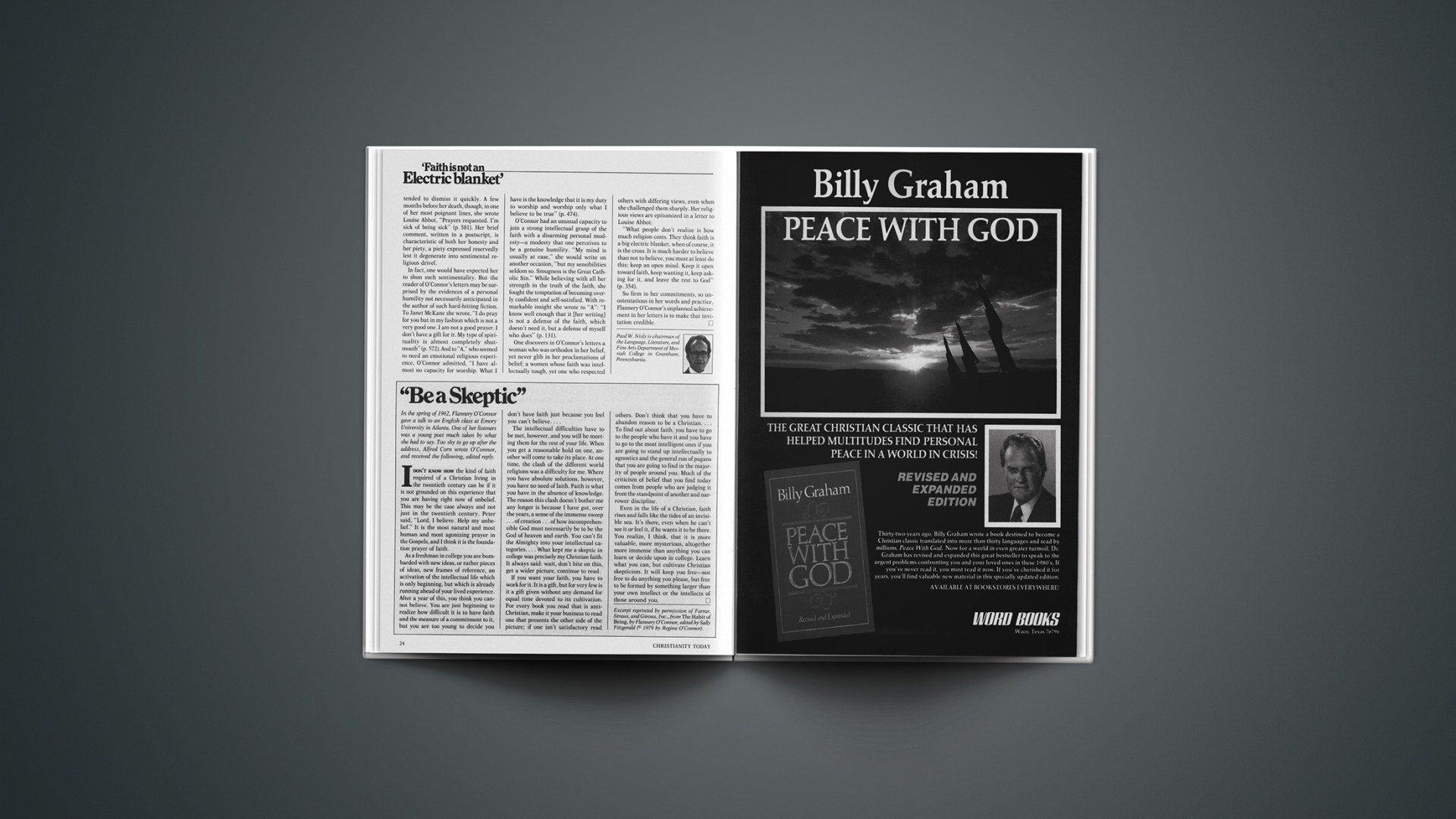In the spring of 1962, Flannery O’Connor gave a talk to an English class at Emory University in Atlanta. One of her listeners was a young poet much taken by what she had to say. Too shy to go up after the address, Alfred Com wrote O’Connor, and received the following, edited reply.
I don’t know how the kind of faith required of a Christian living in the twentieth century can be if it is not grounded on this experience that you are having right now of unbelief. This may be the case always and not just in the twentieth century. Peter said, “Lord, I believe. Help my unbelief.” It is the most natural and most human and most agonizing prayer in the Gospels, and I think it is the foundation prayer of faith.
As a freshman in college you are bombarded with new ideas, or rather pieces of ideas, new frames of reference, an activation of the intellectual life which is only beginning, but which is already running ahead of your lived experience. After a year of this, you think you cannot believe. You are just beginning to realize how difficult it is to have faith and the measure of a commitment to it, but you are too young to decide you don’t have faith just because you feel you can’t believe.…
The intellectual difficulties have to be met, however, and you will be meeting them for the rest of your life. When you get a reasonable hold on one, another will come to take its place. At one time, the clash of the different world religions was a difficulty for me. Where you have absolute solutions, however, you have no need of faith. Faith is what you have in the absence of knowledge. The reason this clash doesn’t bother me any longer is because I have got, over the years, a sense of the immense sweep … of creation … of how incomprehensible God must necessarily be to be the God of heaven and earth. You can’t fit the Almighty into your intellectual categories.… What kept me a skeptic in college was precisely my Christian faith. It always said: wait, don’t bite on this, get a wider picture, continue to read.
If you want your faith, you have to work for it. It is a gift, but for very few is it a gift given without any demand for equal time devoted to its cultivation. For every book you read that is anti-Christian, make it your business to read one that presents the other side of the picture; if one isn’t satisfactory read others. Don’t think that you have to abandon reason to be a Christian.… To find out about faith, you have to go to the people who have it and you have to go to the most intelligent ones if you are going to stand up intellectually to agnostics and the general run of pagans that you are going to find in the majority of people around you. Much of the criticism of belief that you find today comes from people who are judging it from the standpoint of another and narrower discipline.
Even in the life of a Christian, faith rises and falls like the tides of an invisible sea. It’s there, even when he can’t see it or feel it, if he wants it to be there. You realize, I think, that it is more valuable, more mysterious, altogether more immense than anything you can learn or decide upon in college. Learn what you can, but cultivate Christian skepticism. It will keep you free—not free to do anything you please, but free to be formed by something larger than your own intellect or the intellects of those around you.
Excerpt reprinted by permission of Farrar, Straus, and Giroux, Inc., from The Habit of Being, by Flannery O’Connor, edited by Sally Fitzgerald (© 1979 by Regina O’Connor).










